
HCV Network and FEMEXPALMA sign Cooperation Agreement
The High Conservation Value Network (HCVN) and the Mexican Oil Palm Federation (FEMEXPALMA) have signed a 5-year cooperation agreement to promote sustainable production of palm oil in Mexico through three strategic lines of work: Conservation, Capacity Building and Outreach.
Press Release
21 April 2022
The High Conservation Value Network (HCVN) and the Mexican Oil Palm Federation (FEMEXPALMA) have signed a 5-year cooperation agreement to promote sustainable production of palm oil in Mexico through three strategic lines of work: Conservation, Capacity Building and Outreach.
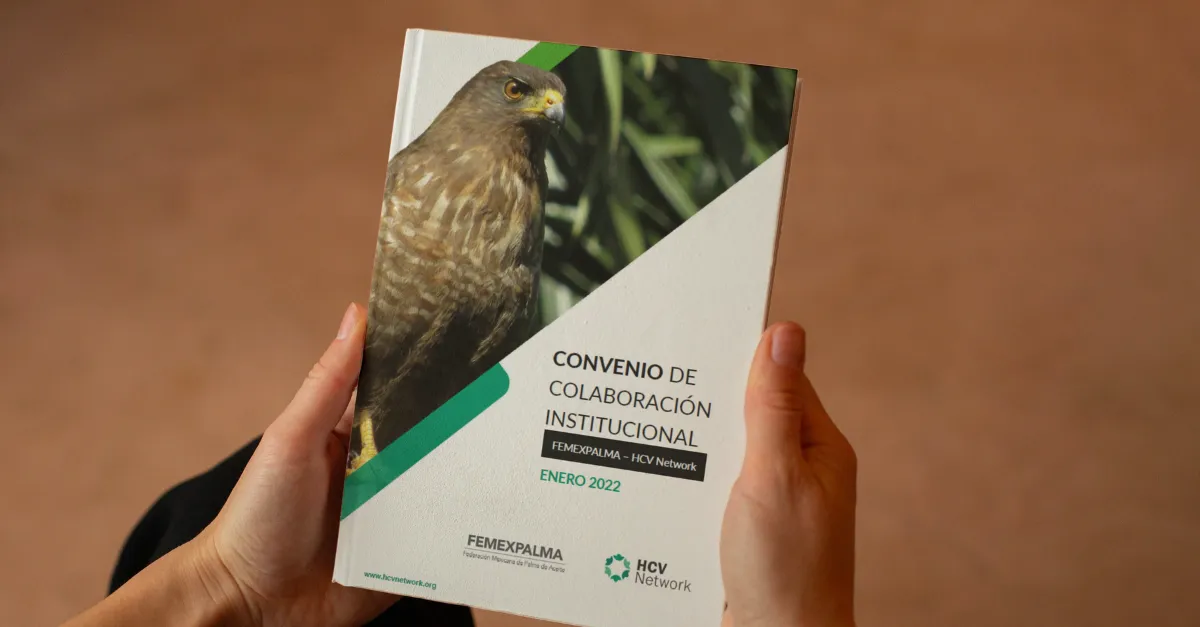
FEMEXPALMA is the first oil palm federation to sign a cooperation agreement with the HCV Network, a global, member-based organization that protects High Conservation Values (HCVs) from the impacts of land-use change. Through this agreement, FEMEXPALMA producers show their commitment to produce palm oil sustainably in Mexico, a country where poor land-use planning is putting critical natural, social, and cultural values at risk.
The cooperation agreement includes three lines of work:
Conservation
The HCV Network will support FEMEXPALMA’s members and allies to design better strategies to manage and monitor High Conservation Values and support smallholders to achieve RSPO certification and implement good agricultural practices. Joint fundraising will be key to ensure implementation of activities.
Capacity building
Identification of High Conservation Values is key to guide responsible land-use planning and landscape management. One of the main activities in this line of work includes strengthening local capacity for the identification of HCVs and providing continuous learning activities to improve HCV management and monitoring strategies. FEMEXPALMA’s CIISPALMA center will serve as a learning hub.
Outreach
This line of work seeks to raise awareness about responsible palm oil production in Mexico and showcase how the HCV Approach can support sustainability efforts in the sector. Activities will include developing and sharing evidence-based outreach materials, using both HCV Network and FEMEXPALMA’s communications experience, with key stakeholders including the Mexican palm oil sector, local NGOs, local communities and the wider public.
High Conservation Values in oil palm production landscapes
The palm oil sector in Mexico has grown exponentially since the crop was introduced in the early 1990s. Palm oil is grown in four states: Veracruz, Tabasco, Campeche, and Chiapas, with Chiapas having the largest extension of cultivated area in the country. These states harbor High Conservation Values (HCVs), including the only tropical rainforests in Mexico, home to iconic species like the jaguar and the tapir. There is also a rich cultural diversity due to the presence of indigenous peoples including the Chʼol, Tzotzil and Chontal Maya. Conserving HCVs is vital to meeting international climate change and biodiversity targets, and thus, palm oil production in Mexico must follow the strictest environmental and social safeguards to avoid harmful impacts on nature and people. This will be only possible through close collaboration amongst stakeholders, and with public incentives that are not at odds with global sustainability targets and markets.
.webp)
Protecting High Conservation Values - HCVs
High Conservation Values are biological, ecological, social, or cultural features of outstanding significance or critical importance. There are six categories of HCVs covering biodiversity, ecosystem services, nature’s contributions to people and cultural heritage.
The most important voluntary sustainability standards (VSS) require the protection of High Conservation Values to guide responsible farming of food and other key commodities such as cotton and rubber. The HCV Approach is a methodology that is used in areas where development is already happening and ensures that any land use decision processes take into account HCVs so they are not destroyed or damaged.
One of the VSS that requires the identification and protection of HCVs prior to the establishment of any new oil palm plantations is the Roundtable on Sustainable Palm Oil (RSPO) Standard for Sustainable Oil Palm Production. Companies also must manage these areas properly to ensure their long-term protection. The HCV Network is working together with companies to explore opportunities for best management and monitoring practices of HCVs.
Palm oil production in Mexico & global markets
Mexico’s National Agriculture Plan 2017-2030 seeks to boost palm oil production and develop export markets in the USA, Canada, the European Union (EU), and Asia. However, for Mexican producers to be able to export to key markets such as the European Union, they will have to meet strict requirements such as certification by the Roundtable on Sustainable Palm Oil (RSPO). The new proposed EU regulation on deforestation-free products will also require companies that sell products produced with soy, palm oil and beef to ensure they are deforestation-free before entering the European market or exporting them from the EU. With global markets becoming stricter, the HCV Approach can support Mexican palm oil producers, and the Mexican government, ensuring that oil palm is not grown at the expense of ecosystems such as forests, and the needs of local communities and indigenous peoples.
About
HCV Network
The HCV Network sets the standard for the implementation of the HCV Approach, which encompasses the identification, management, and monitoring of High Conservation Values. The methodology has been extensively used for 20-years to protect High Conservation Values (HCVs) from the negative impacts of land-use change. The HCV Network provides support to all users of the HCV Approach. In oil palm production, the HCV Network provides quality assurance of HCV and HCV-HCSA assessments (the studies needed to identify HCVs) and provides technical support and tools to protect HCVs and engage with other stakeholders such as smallholder farmers in the process.
As a Mexican I am very excited about the HCV Network’s collaboration with Femexpalma. Our organizations are joining forces to promote sustainable production of palm oil in Mexico, one of the world’s megadiverse countries. We look forward to working with Femexpalma to ensure that palm oil production in Mexico is not at odds with protecting biodiversity, habitats, and the immense cultural heritage of our country. Paulina Villalpando, Global Director, HCV Network.
FEMEXPALMA
The Mexican National Palm Oil Federation, FEMEXPALMA is an independent entity that represents palm production – palm oil growers and mills – at the national level and promotes the increase of productivity in a sustainable way. FEMEXPALMA provides expert advice, capacity building and apply research in the palm oil industry. The organization ensures collaboration with multiple stakeholders across the palm oil supply chain in Mexico. Additionally, FEMEXPALMA managed to install the First Sustainability and Innovation Research Center for Palm Oil in Mexico, named CIISPALMA as a technical and applied facility in benefit of the entire agroindustry.
At FEMEXPALMA the adoption of sustainable practices across the value chain has been a key element of our daily work. The cooperation agreement between the HCV Network and FEMEXPALMA will translate into increased technical capacity for the Mexican palm oil sector. It is the beginning of a long-term collaboration that will help us conserve High Conservation Values, promote initiatives, capacity building, and develop tools to support sustainable development of oil palm in Mexico. José Luis Pérez Vázquez Aldana, CEO of Femexpalma.
Related Posts
Astra-Academy is delivering an HCV Licensed Assessor Training Course from 13-15 April 2026
Read MoreThe Importance of Considering Land Use Planning and HCV Assessments for Disaster Mitigation
Every decision today shapes the fate of tomorrow's commit to protecting HCVs, and together we build a resilient future we all need and desire.
Read MoreDedicated webpage to more easily access resources on the Forest Integrity Assessment tool
Read MoreOur Partnerships
Alongside many global initiatives, our work with partners promotes practices that help meet the global Sustainable Development Goalsand build a greener, fairer, better world by 2030.


Femexpalma
In April 2022, FEMEXPALMA and the HCV Network signed a 5-year cooperation agreement to promote sustainable production of palm oil in Mexico. FEMEXPALMA is a Mexican independent entity that represents palm production at the national level and promotes the increase of productivity in a sustainable way.
With global markets becoming stricter, for Mexican producers to be able to export to key markets such as the European Union, they must meet strict requirements such as certification by the Roundtable on Sustainable Palm Oil (RSPO). To be certified by RSPO, the HCV Approach must be applied prior to the establishment of any new oil palm plantations. With this cooperation agreement, the HCV Network will support FEMEXPALMA’s members and allies to design better strategies to identify, manage and monitor High Conservation Values and support smallholders to achieve RSPO certification and implement good agricultural practices.
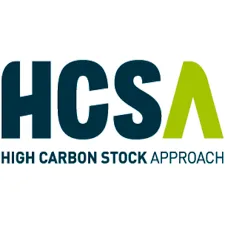

High Carbon Stock Approach
The High Carbon Stock Approach (HCSA) is an integrated conservation land use planning tool to distinguish forest areas in the humid tropics for conservation, while ensuring local peoples’ rights and livelihoods are respected.
In September 2020, HCV Network and the HCSA Steering Group signed a five-year Memorandum of Understanding (MoU) to strengthen their collaboration to conserve forests and uphold community rights in tropical forests. The HCS and HCV Approaches are cornerstones of corporate no deforestation and conservation commitments, and increasingly for actors working at different scales. The collaboration aims to further support effective implementation of these commitments through increased uptake of the HCV and HCS tools.
Through this MoU, HCSA and HCVRN are pursuing two main strategic goals:
- Strive to promote the application of the two approaches in tropical moist forest landscapes and explore further opportunities for collaboration.
- Ensure that, where the two approaches are applied together, this happens in a coordinated, robust, credible, and efficient manner, so that HCS forests and HCVs are conserved, and local peoples’ rights are respected.


World Benchmarking Alliance
From May 2022, the HCV Network is an ally at the World Benchmarking Alliance (WBA). WBA is building a diverse and inclusive movement of global actors committed to using benchmarks to incentivise, measure, and monitor corporate performance on the SDGs, and will assess and rank the performance of 2,000 of the world’s most influential companies against seven systems of transformation by 2023.
The scope of WBA’s circular transformation was expanded to cover nature and biodiversity as recognition of the need for greater understanding, transparency and accountability of business impact on our environment. The WBA Nature Benchmark was launched in April 2022, which will be used to rank keystone companies on their efforts to protect our environment and its biodiversity. As HCV Areas are recognised as key areas important for biodiversity, companies that publicly disclose their actions to identify and protect HCVs will contribute to the assessment of their performance against the benchmark.
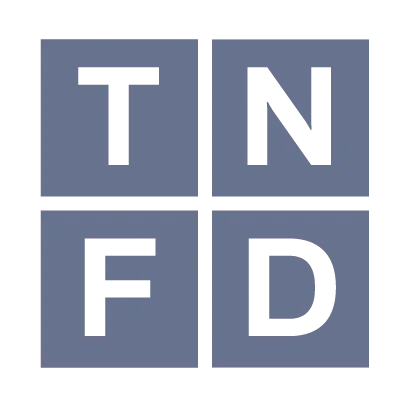

Taskforce on Nature-related Financial Disclosures - TNFD
The Taskforce on Nature-related Financial Disclosures (TNFD) is a global, market-led initiative, established with the mission to develop and deliver a risk management and disclosure framework for organizations to report and act on evolving nature-related risks, with the aim of supporting a shift in global financial flows away from nature-negative outcomes and toward nature-positive outcomes.
In April 2022, the HCV Network joined the TNFD Forum. The TNFD Forum, composed of over 400 members, is a world-wide and multi-disciplinary consultative network of institutional supporters who share the vision and mission of the task force.
By participating in the Forum, the HCV Network contributes to the work and mission of the taskforce and help co-create the TNFD Framework which aims to provide recommendations and advice on nature-related risks and opportunities relevant to a wide range of market participants, including investors, analysts, corporate executives and boards, regulators, stock exchanges and accounting firms.


Aquaculture Stewardship Council
The Aquaculture Stewardship Council (ASC) is the world’s leading certification scheme for farmed seafood – known as aquaculture – and the ASC label only appears on food from farms that have been independently assessed and certified as being environmentally and socially responsible. In 2021, the HCV Network and ASC formalised their collaboration through a Memorandum of Understanding (MoU). The MoU represents the first step in a fruitful relationship aimed at conserving HCVs in aquaculture. Although, existing guidance on the use of the HCV Approach currently focuses mainly on forestry and agriculture, the HCV Approach is however generic, and in principle also applicable to aquatic production systems. Through this MoU, this is recognised by the Aquaculture Stewardship Council (ASC) in their ASC farm standard, in which the protection of HCV areas is mentioned in the context of expansion
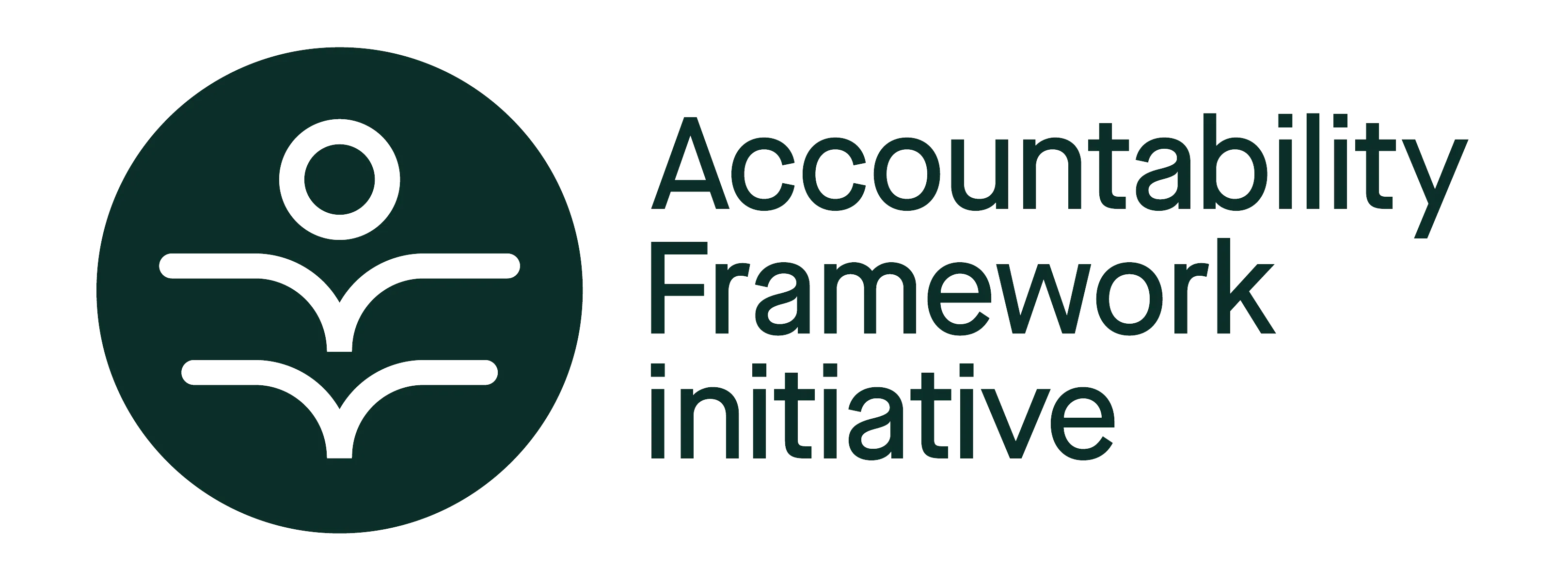

Accountability Framework Initiative
The Accountability Framework initiative (AFi) is a collaborative effort to build and scale up ethical supply chains for agricultural and forestry products. Led by a diverse global coalition of environmental and human rights organizations, the AFi works to create a “new normal” where commodity production and trade are fully protective of natural ecosystems and human rights. To pursue this goal, the coalition supports companies and other stakeholders in setting strong supply chain goals, taking effective action, and tracking progress to create clear accountability and incentivize rapid improvement. In July 2022, the HCV Network joined AFi as a Supporting Partner. AFi Supporting Partners extend the reach and positive impact of the AFi by promoting use of the Accountability Framework by companies, industry groups, financial institutions, governments, and other sustainability initiatives, both globally and in commodity-producing countries.


Biodiversity Credit Alliance
The Biodiversity Credit Alliance (BCA) is a global multi-disciplinary advisory group formed in late 2022. Its mission is to bring clarity and guidance on the formulation of a credible and scalable biodiversity credit market under global biodiversity credit principles. Under these principles, the BCA seeks to mobilize financial flows towards biodiversity custodians while recognising local knowledge and contexts.
The HCVN joined the BCA Forum in August 2023 to learn more from the many organizations already coming together to find effective pathways to opening up credit-based approaches, and how to contribute our knowledge and experience of years of working in a practical way, often with global sustainability standards and their certified producers, to protect what matters most to nature and people.
.webp)
.webp)
Nature Positive Forum
The Nature Positive Initiative is a group of stakeholders coming together to find ways to unlock success and achieve Nature Positive - a global societal goal defined as ‘halt and reverse nature loss by 2030 on a 2020 baseline, and achieve full recovery by 2050’, in line with the mission of the Kunming-Montreal Global Biodiversity Framework.
Core work includes preserving the integrity of ‘Nature Positive’ as a measurable 2030 global goal for nature for business, government, and other stakeholders, and providing the tools and guidance necessary to allow all to contribute. The initiative also advocates for the full implementation of the Kunming-Montreal Global Biodiversity Framework by governments and other stakeholders.
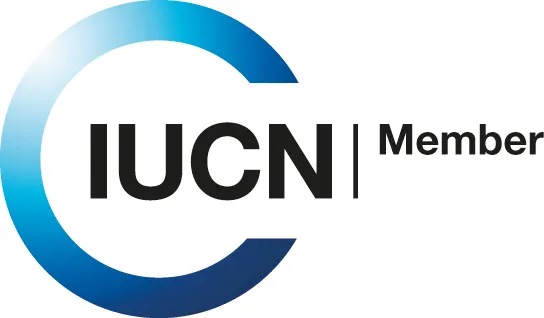

IUCN
IUCN is a membership Union uniquely composed of both government and civil society organisations. It provides public, private, and non-governmental organisations with the knowledge and tools that enable human progress, economic development, and nature conservation to take place together.
Created in 1948, IUCN is now the world’s largest and most diverse environmental network, harnessing the knowledge, resources and reach of more than 1,400 Member organisations and around 15,000 experts. It is a leading provider of conservation data, assessments, and analysis. Its broad membership enables IUCN to fill the role of incubator and trusted repository of best practices, tools, and international standards.
IUCN provides a neutral space in which diverse stakeholders including governments, NGOs, scientists, businesses, local communities, indigenous peoples’ organisations, and others can work together to forge and implement solutions to environmental challenges and achieve sustainable development.
Working with many partners and supporters, IUCN implements a large and diverse portfolio of conservation projects worldwide. Combining the latest science with the traditional knowledge of local communities, these projects work to reverse habitat loss, restore ecosystems, and improve people’s well-being.

Get Involved
Our Mission as a network is to provide practical tools to conserve nature and benefit people, linking local actions with global sustainability targets.
We welcome the participation of organisations that share our vision and mission to protect and enhance High ConservationValues and the vital services they provide for people and nature. By collaborating with the Network, your organisation can contribute to safeguarding HCVs while gaining valuable insights and connections that support your sustainability goals.
We are seeking collaborative partners to help expand and enhance our work, as well as talented professionals who can join the growing Secretariat team, and for professionals who can contribute to the credible identification of High Conservation Values globally.
Join us in securing the world’s HCVs and shaping a sustainable future.


